
5 Ways You May Be Self-Sabotaging Your Relationship (And How You Can Stop)
Something’s not right.
It seems like every time you look around, something has happened to trigger either you or your partner. Little things set each of you off, and the arguments are coming more frequently. It’s almost like someone is doing stuff to cause these conflicts.
There’s a saboteur in your presence, but who could it be?
Take a good look in the mirror because the one sabotaging your relationship might be you!
What Do We Mean When We Talk About Self-Sabotage?
Self-sabotage boils down to one simple thing: Getting in your own way!
In her book The Healthy Mind Toolkit, Alice Boyles talks about ways we sabotage ourselves and how to recognize the signs we’re doing. You have to recognize how we create these situations so you can take steps to prevent doing it.
Alice gives this example:
You’ve told your partner something, but they don’t seem to be listening to you because you’ve had to repeat it a few times. You begin talking about it more and more out of frustration to try and get them to listen to the point you’re trying to make. Now, your partner starts tuning you out because you’re being so repetitive.
This creates a situation where your point never gets addressed, and you begin to resent your partner for not listening. You begin to hold a grudge against your partner and feel like you can’t talk to them, hurting your communication with them. Meanwhile, they’ve gotten so used to tuning you out that they barely recognize you’re not talking to them anymore. Your partner is probably just glad you’re not constantly saying the same thing.
You must recognize when you’re getting in your own way to stop sabotaging yourself and your relationship. In that example, seeing that you’re fixating on one thing and repeatedly talking about it allows you to adjust for that behavior. You can take a few days before bringing the point up again.
Then, when you address it again, set the stage for having a more effective conversation. You can turn off the TV and ask your partner to put down their phone and give you just a little bit of their undivided attention. You can help them focus more clearly on what you’re trying to communicate with them by doing things like this.
But only knowing how you can sabotage your relationships doesn’t tell the whole story. Yes, it can help you avoid having unrealistic expectations of your partner, but understanding why you may be getting in your own way gives you more control in breaking a cycle of self-sabotage.
Things don’t have to be all or nothing. Learning why can help you realize that incremental improvements can be acceptable and help you be happier. Let’s take a look at five reasons why you may be the one sabotaging your relationship.
#1: Your Relationship Skills Aren’t Well-Developed
You might not even realize you’re sabotaging your relationship because you may not even know how to be in one. Maybe you’re with your first serious partner, or your previous relationships were with people who didn’t communicate well. There are several factors that can contribute to not developing good relationship skills.
One big factor in developing these skills is maturity. The more grounded you are, the less likely you are to be shaken by the ups and downs that come in a relationship. Without this maturity, you can get upset when things with your partner get rocky and react poorly.
Maybe you withdraw from your partner because of a disagreement, giving them the silent treatment. Perhaps you get defensive in response to a critique of you that they make. Worst of all, they bring up something you’re not doing or that they need, and your response is to lash out and attack your partner.
Any and all of these are ways you might respond to feeling hurt by your partner. These are also signs of emotional immaturity, as they are all ways to try and make your partner feel as bad as you do.
Lacking in relationship experience isn’t something you can be held responsible for, but how you handle adversity in a relationship is. Be mindful of how you react to challenges, and build your emotional intelligence to temper your reactions. Your relationships, both personal and professional, will thank you for it!
#2: Your Self-Esteem Causes Issues
Not everyone can be supremely confident in themselves as a person. There are a lot of things that can lead to someone having low self-esteem.
If you had a bad breakup previously, it could affect your future relationships, and you can be saddled with baggage without even realizing it. Having a partner reject and leave you can deeply damage your self-esteem.
If you were being gaslighted by a past partner, it probably caused your self-esteem to take a hit. Gaslighting is a form of emotional abuse where one person tries to deny the other person’s reality or experiences. This typically occurs as the gaslighter turns the blame for a situation around on the victim, thereby denying any responsibility on their part. This also damages the victim by making them feel guilty and chipping away at their self-esteem.
Furthermore, low self-esteem can cause you to fall into traps of your own making. You may think you’re being self-deprecating by saying things like, “You’re so much smarter than me,” or “I can’t believe you’re with me because you’re so out of my league.”
Saying things like these can lead to your partner questioning why they are actually with you. Most people don’t want to hear that they love someone who is worthless. It can leave them looking for an exit when, despite their reassurances that you are good enough, you keep tearing yourself down. They begin to feel like they are selling themselves short and could do better for themselves.
It can be difficult to regain self-esteem, but it’s far from impossible. Seeking a therapist for help in moving past the experiences of a bad breakup might be necessary. Actively listening to your partner when they reassure you can help you take their compliments to heart. Using daily affirmations can assist you in rebuilding your confidence. Taking steps to be a better you will make you a better partner!
Join In 200 Million+ On The Journey to Greatness
#3: You’re Afraid of the Relationship
Along with negatively affecting your self-esteem, a bad breakup can trigger fears of feeling heartbreak and abandonment.
Whether the split resulted from incompatibility, drifting apart, or infidelity, you can find yourself questioning why you weren’t good enough. These questions can impact your future relationships as you worry and anticipate a similar result. You wind up looking for trouble signs that aren’t even there and guarding yourself against potentially getting hurt again.
This mindset keeps you from being truly open with your partner because you’re so focused on preventing pain that you can’t be happy. It can also lead to you compromising your ideals or needs in an effort to keep your partner from potentially leaving.
You can be so terrified of the relationship ending that you’ll sacrifice too much as a way to please your partner. Fear of abandonment can lead you to avoid voicing issues you have while accepting unfair responsibility for your partner’s concerns. Instead of discussing things as a couple and reaching a compromise to resolve them, the balance of the relationship skews.
This creates further issues between you and your significant other as your partnership becomes imbalanced. They will start feeling as though they have taken on all responsibility in the relationship and will resent you for not contributing. They can also lose respect for you as a partner and begin to see you as a doormat who gives in too easily. Communication breaks down between you both as you become more of a dependent than an equal participant.
You can also be afraid of the relationship itself. Maybe you’re scared of losing your identity and sense of self by being part of a couple. If feeling afraid of your partner leaving can lead to you sacrificing your needs, then the opposite is certainly possible!
You might be so concerned with losing your personal identity that you become inflexible toward your partner’s needs. Instead of being the doormat we discussed above, you’ve now become a dictator asserting control over the relationship.
Overcoming your fears around a relationship, whichever type they are, is the key to achieving a true balance with your significant other.
#4: Your Expectations of Your Partner Are Unrealistic
Having unrealistic expectations of your partner and your relationship can be very easy. Both of you are at your best when you’re in the early stages of dating. People tend to put their best foot forward to make themselves more appealing to whomever they’re dating. You also tend to have love blinders on, not always noticing the other person’s quirks.
The fears we discussed earlier can also cause you to impose unfair expectations on your partner. You don’t want to be held responsible for things other people do, yet you can hold the actions of prior partners against the one you’re currently with.
If you’re not communicating with each other as your relationship progresses, in time, you’ll discover just how far off your expectations are. You and your partner might have different priorities in life or different goals for yourselves and your relationship. You might wake up one day and realize that you are not aligned and are too far apart to ever reach a compromise.
Maybe you want to have kids, but your partner doesn’t. You can’t expect them to change their mind down the road in hopes of keeping the relationship going. What if you’re willing to relocate hundreds of miles away for your career, but your partner has deep roots where you’re currently living? Is it fair for you to expect them to cut those ties and follow you for your benefit only?
The biggest key to keeping your expectations realistic is honest and open communication. Good communication will help temper the expectations you and your partner have for each other and help you find a middle ground in any disagreements more easily. Having healthy lines of communication will also build and strengthen trust between you, which leads to the next reason for self-sabotage.
#5: You Have Trust Issues
Trust is the backbone of every relationship you will ever have and is also the greatest gift that can be given or received. No relationship can ever hope to survive when there is a lack of trust between the people involved.
While there are numerous ways that trust can be broken, distrust can be created just based on the perceptions of one person. You can get in your own head and see issues that don’t truly exist or suspicious behaviors because you read too much into what they could mean. Not trusting your partner will lead to issues like lying, possessiveness, jealousy, and potential infidelity.
Being jealous or possessive of your partner will make them feel trapped and more likely to seek a way out of the relationship. You can wind up behaving in self-destructive ways by doing invasive things like searching through their phone to try and find evidence of perceived cheating. You treat them more like a child than a partner as you start questioning where they are or what they’re doing at any given time.
You’ll begin to think they’re lying to you when they answer these questions because of your distrust. They might even feed into this destructive cycle by starting to lie or be evasive because they feel you won’t believe them anyway. Ultimately, they can wind up being unfaithful because your behavior drives them away and they seek a better partner or relationship.
Understanding why you struggle to trust is the only way to break this type of cycle. You might need therapy to determine the cause of your trust issues. You and your partner may need couples counseling to work through trust issues with an objective mediator.
Get Out of Your Own Way and Be Happy!
Recognizing why you might be sabotaging your relationship helps you make the changes you need to be more secure and happier with your partner. Communicating honestly and coming to a consensus with your partner will build the trust you share and help you both accept each other, flaws and all!
Relationships are challenging, but we’re here to help you at Greatness! Jillian Turecki discusses some reasons why relationships fail and having effective conversations with your partner here. Mel Robbins gives more advice on what to do to stop sabotaging your relationships here.
Stop getting in your own way, and your relationship will achieve Greatness!
Greatness Authors
Greatness Authors is a collection of writers, thinkers, curiosity experts, and students of the world who are committed to bringing you the most up-to-date, impactful, and inspiring information surrounding Greatness topics.
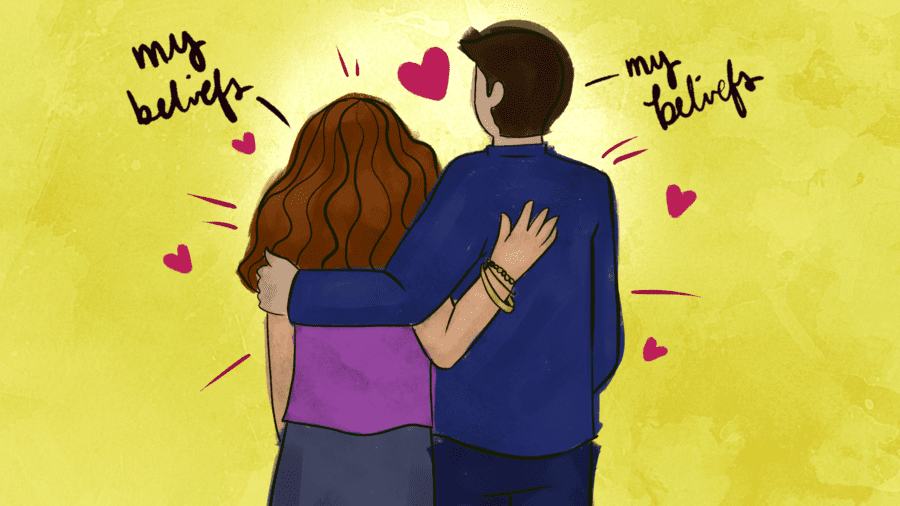
How to Have a Healthy Romantic Relationship Even if You Share Different Beliefs
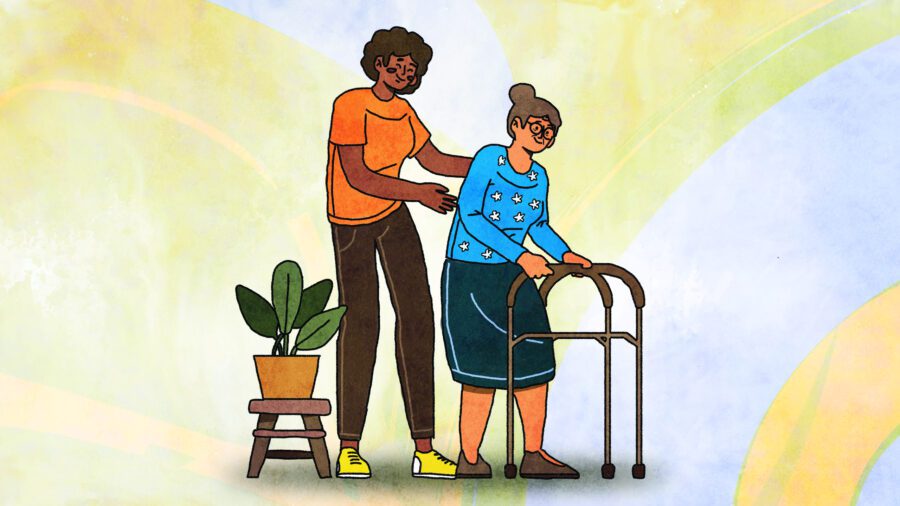
13 Tips to Help a Parent Transition into Assisted Living with Care & Respect
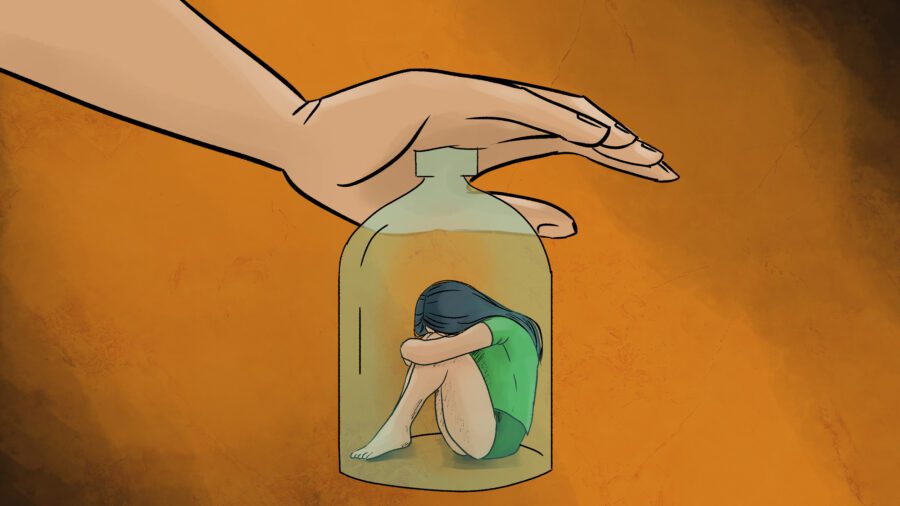
Take Your Power Back: 9 Subtle Signs Your Partner Is Gaslighting You
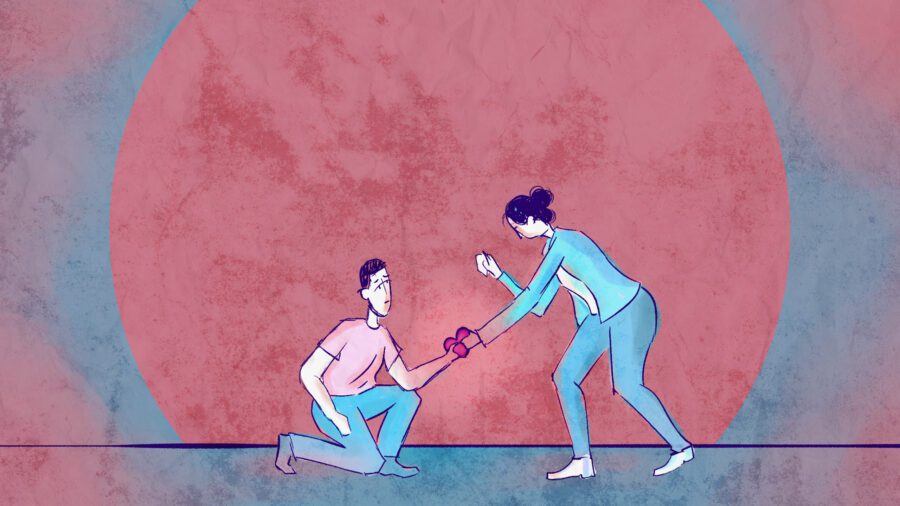
Apologizing 101: How to Apologize from the Heart & Mend Your Mistakes Without People Pleasing
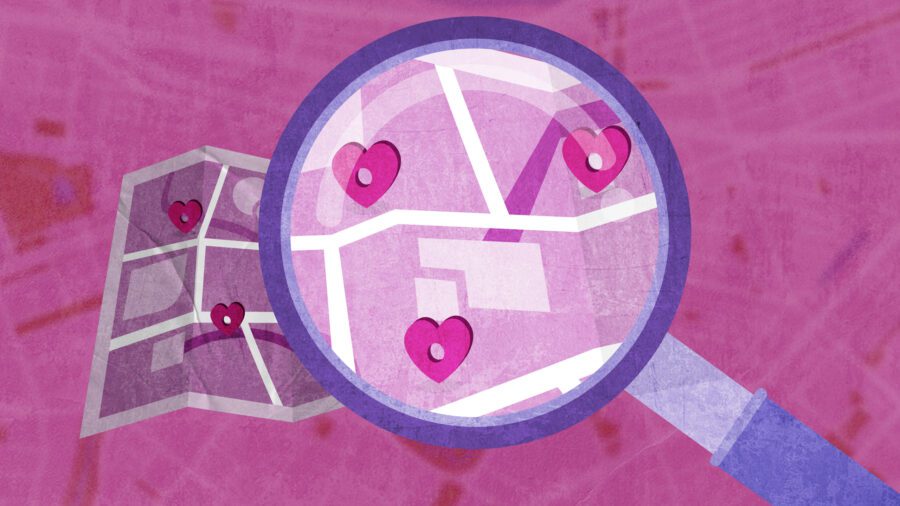
The Ultimate Guide to Finding “the One,” According to Relationship Expert Stephan Speaks










